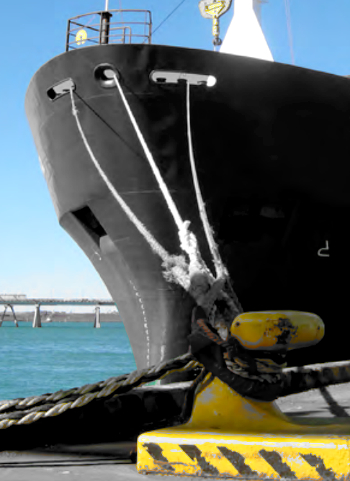Boat fight threatens shipping
 An indefinite lockout of workers could soon bring Australia’s major ports to a halt.
An indefinite lockout of workers could soon bring Australia’s major ports to a halt.
The services of tug boat giant Svitzer are critical to getting container ships into and out of ports around the country.
The company has notified 582 striking workers that it will bar them from working from Friday, hoping to break a lengthy industrial dispute.
The company has been bargaining with unions for a new agreement since September 2019 and has held 75 bargaining meetings, but none since October 20.
Tugboat crews have taken over 250 instances of protected action at Svitzer since October 20, totalling almost 2,000 hours of stoppages. The actions include a series of four-hour to 24-hour strikes, overtime bans and a ban on servicing Maersk ships. Maritime unions are notifying fresh new actions almost daily.
Workers are protesting their employer’s push to remove union restrictions that Svitzer claimed put it at a disadvantage to competitors. It says the restrictions have forced it to exit three ports and retrench 130 workers between 2020 and 2021.
The current workplace agreement lets unions nominate members for new jobs, participate in shortlisting and even interview job applicants.
Tugboat workers earn $130,000 to $200,000 a year depending on whether they are deckhands, engineers or masters.
Casuals receive a 25 per cent loading under the award, but take home a 100 per cent loading in the agreement. Also, they must be paid for a full day regardless of how many hours they work.
The current agreement restricts when particular work can be done, forcing Svitzer to hire more workers to do other work for the rest of the day.
Maritime Union of Australia national assistant secretary Jamie Newlyn has accused Svitzer, which is owned by Maersk, of triggering a “massive nationwide industrial conflict”.
“Locking out their workers will wreck Australia’s productivity, prevent consumer goods and bulk commodities being loaded or discharged at major ports like Botany, Kembla, Melbourne, Newcastle and Brisbane, and every Australian business and consumer will now suffer from this delinquent company’s selfish and pigheaded conduct,” Mr Newlyn said.
“Svitzer will bring their reputation down to the level of Qantas in the eyes of the Australian community if they lock out their workforce while trying to ram through a massive pay cut.”
Workplace Relations Minister Tony Burke says the dispute provides a “classic example” of why the Fair Work Commission needs greater arbitration powers proposed in the government’s industrial relations bill.
“We want disputes like this to be resolved quickly and fairly – it’s in no one’s interests for them to drag on,” Mr Burke said.
“The Secure Jobs, Better Pay Bill includes a provision that would allow the industrial umpire to step in and arbitrate when a dispute becomes intractable like this one has.
“This is simply another reason why getting this legislation through is urgent.”







 Print
Print